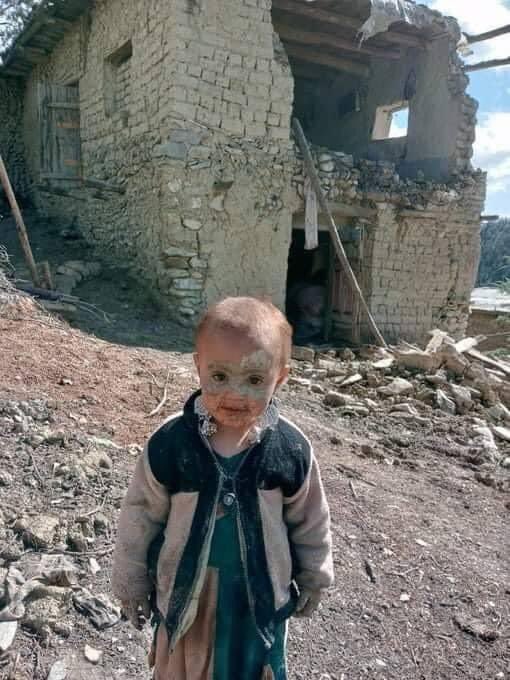Image Source: Tajuden Soroush
The Seismic Episode:
On June 22, Afghanistan’s Paktika and Khost provinces woke up to a “shaky” dawn as the country was reduced to rubble caused by a catastrophic earthquake of magnitude 6.1. The quake was reportedly the deadliest in two decades, leaving behind mounting casualties. So far, 1,000 people have lost their lives, while at least 1,500 injured, the state-run news agency, Bakhtar, announced. The seismic event was felt as far as Pakistan and India, as per the European-Mediterranean Seismological Centre (EMSC); It is estimated that approximately 119 million people were affected. The earthquake undoubtedly pushed to test the primitive infrastructure and the dearth of emergency help. Millions of people continue to face high risks of hunger, poverty, and unforeseen health conditions. Innumerable people went missing, presumably trapped beneath the debris, making rescue efforts an uphill task. As of June 23, two more earthquakes – magnitudes 4.2 and 4.3, struck the Jurm region in Badakshan province. The casualties from these quakes remain undetermined.
As The World Responds, Eyewitnesses Recount:
“We ask the Islamic Emirate, and the whole country to come forward and help us” said Hakimullah, a survivor of the quake, to ABC News; providing Afghanistan with prompt aid could potentially be impeded by the departure of humanitarian agencies post the Taliban takeover. However, Australia, India, Pakistan, the United Nations, the World Health Organization, and other neighbouring countries have responded to the de-facto government. On the contrary, Dr. Lucy Jones, a seismologist, faults the buildings and infrastructure for the heightened damage caused. “Afghanistan quake is not massive. What matters is what shaking hits what type of building. This quake was right under very bad buildings.” Survivors persistently dig through the ruins by hand, hoping to find their loved ones. Villagers traverse the mud bricks and timber beams as they reminisce that “once was a home there”. Health workers and officials warned of a rising death toll if emergency assistance and adequate medical treatment are not provided to the victims. “All the houses in our area were destroyed, not one, but the entire region has been destroyed. Where will we go?”, Dawn News quotes eyewitness accounts. Hospitals are overwhelmed with patients with injuries. The injured were suggested to be transferred to Kabul city for further treatment. Several provinces are also affected by flash floods that killed at least 400 citizens. Heavy rains have disrupted communication networks and roads. Volunteers trying to reach the affected areas are held back by the weather.
In the End…
We are merely spectators as the country copes with a series of tragedies. As responsible global citizens, we can only hope that the dynamics of warped geopolitics do not cause the nation’s cry for help to go unanswered. Bakhtar News has provided details for donations. Additional information can be found here. To conclude:
Dear Afghanistan, we are sorry, however, we are with you.
Overall Advice:
Many countries ask their citizens to avoid all travel to Afghanistan due to the lack of personal security.
The country is prone to natural disasters at the moment.
For additional information on the entry requirements in place for Afghanistan, please visit Sitata’s COVID checker website. Consider getting a Sitata membership for up-to-date travel and safety alerts.
For businesses that require a more detailed report on the respective countries, please refer to our in-depth country analysis report which is available from our support representatives.




